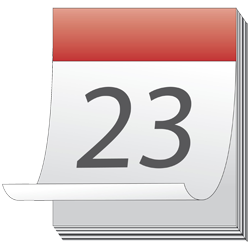Plugins are add-ons that enable extended functionality for people who build websites or blogs with WordPress software. A calendar plug-in is one that places a calendar onto one or more pages of the site, typically in the sidebar. A calendar can mean several different things.
- A calendar of posts – supplied by WordPress with a blog installation as a WordPress calendar widget.
- A days-only calendar for the website visitor. This type of calendar generally shows the days of the week of the current month, with today’s date highlighted in some way. It changes automatically when the month changes. The calendar can help the user see when a post was made, or simply remind him of the date while browsing websites.
- An events or community calendar showing website-related events. The visitor can scan upcoming programs, performances, meetings, etc.
- A calendar for the website owner to keep track of events, appointments, due dates, etc.
- A plugin to integrate a Google calendar into the website
- A reservation service or booking calendar
Note that a booking or reservation service that includes a calendar will not necessarily have the word calendar in its title. So as you search, consider other keywords that might help turn up the exact type of plugin that you’re looking for.
WordPress offers 252 plugins that provide calendars. Of these:
- 82 are related to implementation of a Google calendar
- 135 are events calendars
- The most popular as of August, 2011 is the “Ajax Event Calendar version 0.9.9.2, which was updated on August 17
- The most highly rated as of August, 2011 is “Booking Calendar” version 3.0, which was updated on July 17
- The newest as of August, 2011 is “Every Calendar +1 for WordPress” version 0.1.3, which was updated on August 12
In choosing a WordPress Calendar Plugin, as with choosing any other type of WordPress plugin, you should consider a variety of information prior to installing it. After you search the Plugin Directory to narrow your choices, You will find yourself on the plugin’s own page, in which you may find a description, installation instructions, FAQ, Screenshots, changelog, and stats, which provides a chart of downloads over time. Also included are minimum software requirements, compatibility with WordPress, its average rating, information about how to donate to the developer, and the number of downloads.
After ascertaining that the description matches your needs, you should also check:
- its track record
- the level of support offered
- the developer’s diligence in keeping the plug-in updated for new releases of WordPress
- the clarity of the description
- the availability of straightforward installation instructions
- the ratings other users have given it
- the number of downloads that have been made and when
- how recently it was last updated
If you already have some plugins and a few favorite plugin developers, you could also check to see if they have a plugin available to meet your needs.
